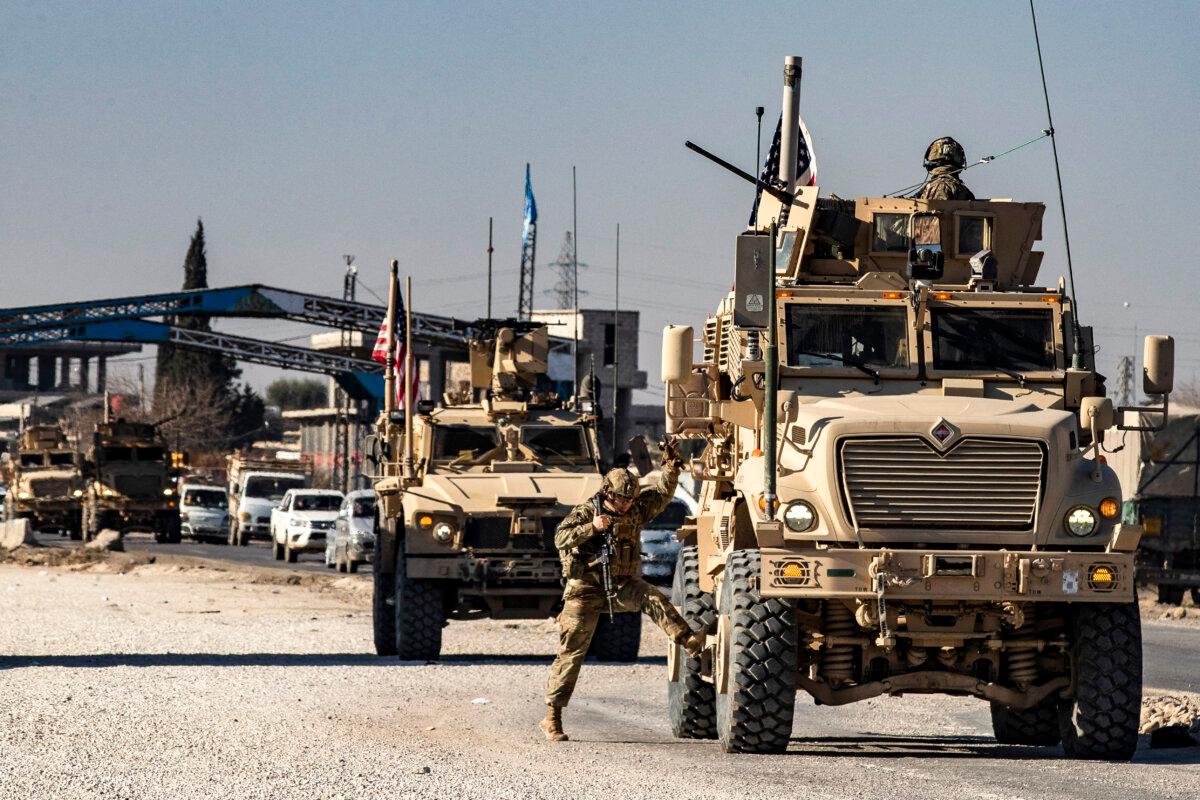Trump and Turkey’s Erdogan discuss Russia-Ukraine conflict and Syria during phone call
The Turkish leader praised the U.S. government’s efforts to bring an end to the three-year conflict between Russia and Ukraine.
U.S. President Donald Trump recently had a phone conversation with Turkish President Recep Tayyip Erdogan to discuss the ongoing conflict in Ukraine and recent developments in Syria, as stated by the Turkish president’s office.
The call on March 16 addressed U.S.–Turkey relations and “regional and global matters,” as shared in a statement posted on social media platform X.
During the call, Erdogan expressed his “strong belief” in the continued cooperation between the United States and NATO member Turkey in a constructive and sincere manner.
He also expressed support for the U.S. government’s efforts to facilitate the end of the Russia–Ukraine war, according to the statement.
Erdogan mentioned that Turkey has been advocating for “a just and lasting peace [between Russia and Ukraine]” since the onset of the conflict.
Despite initially condemning Moscow’s invasion of eastern Ukraine in early 2022, Turkey has maintained cordial relations with Russia based on extensive trade ties and a shared maritime border.
Three years ago, Turkey hosted negotiations between Russia and Ukraine, almost leading to a ceasefire agreement at the time of the conflict’s commencement.
Since then, Turkey has consistently offered to mediate between the warring parties with the goal of ending the war.
During a recent visit to Ankara by Russian Foreign Minister Sergey Lavrov, Turkey reaffirmed its readiness to host new rounds of peace talks.
“We are ready to provide all necessary support for peace negotiations to succeed,” stated Turkish Foreign Minister Hakan Fidan during a joint press conference with Lavrov on Feb. 24.
Fidan also commended the U.S. government’s continuous efforts to resolve the conflict.
In mid-February, top U.S. and Russian officials engaged in landmark talks in Riyadh, Saudi Arabia, including Lavrov and his U.S. counterpart, Marco Rubio.
Leaders Discuss Syria
Trump’s conversation with Erdogan also covered events in Syria, where a rebel offensive backed by Turkey led to the downfall of President Bashar al-Assad’s regime in December.
During the call, Erdogan called for the removal of Western sanctions on Syria to restore stability, ensure the functionality of the new administration, and work towards normalization, as per the Turkish presidency’s statement.
He also expressed his hope that the U.S. would take action in countering terrorism while considering Turkey’s interests.

U.S. forces patrol Syria’s northeastern city of Qamishli, in the Hasakah province mainly controlled by Kurdish-led Syrian Democratic Forces, on Jan. 9, 2025.Delil Souleiman/AFP via Getty Images
Currently, around 2,000 U.S. troops are stationed in northeastern Syria to combat the ISIS terrorist group.
These forces collaborate closely with the Syrian Democratic Forces (SDF), a Kurdish-led group established in 2015.
Turkey considers the SDF a terrorist organization due to its links with the Kurdistan Workers’ Party (PKK), an entity that has engaged in insurgency against Turkey since the 1980s.
The PKK is classified as a terrorist group by Ankara, Brussels, and Washington.
In late February, the PKK announced its decision to end the fight against Turkey after its incarcerated leader, Abdullah Ocalan, called upon supporters to disarm.
In a related development, the U.S.-backed SDF struck a deal with Syria’s post-Assad regime to integrate its fighters into the nation’s restructured security apparatus.
Erdogan appreciated the agreement, emphasizing how its “full implementation” would contribute to Syria’s “security and stability.”
On March 12, Rubio also praised the deal, welcoming the agreement between the Syrian interim authorities and the Syrian Democratic Forces to assimilate the northeast into a unified Syria.
According to Turkey’s Anadolu news agency, Erdogan and Trump last communicated in November, where the former congratulated the latter on his reelection.
Reuters contributed to this report.



